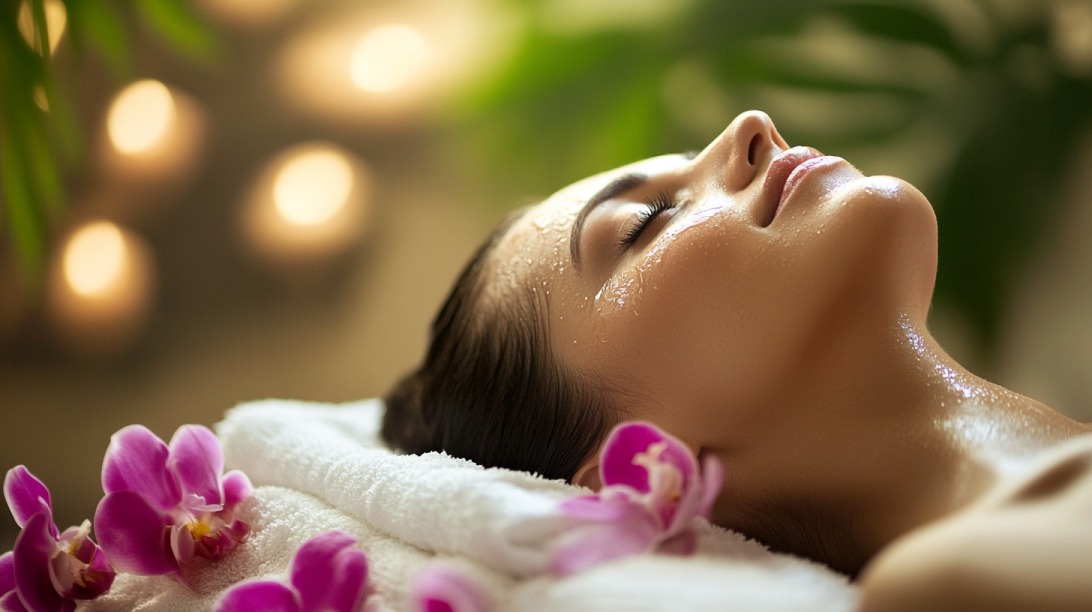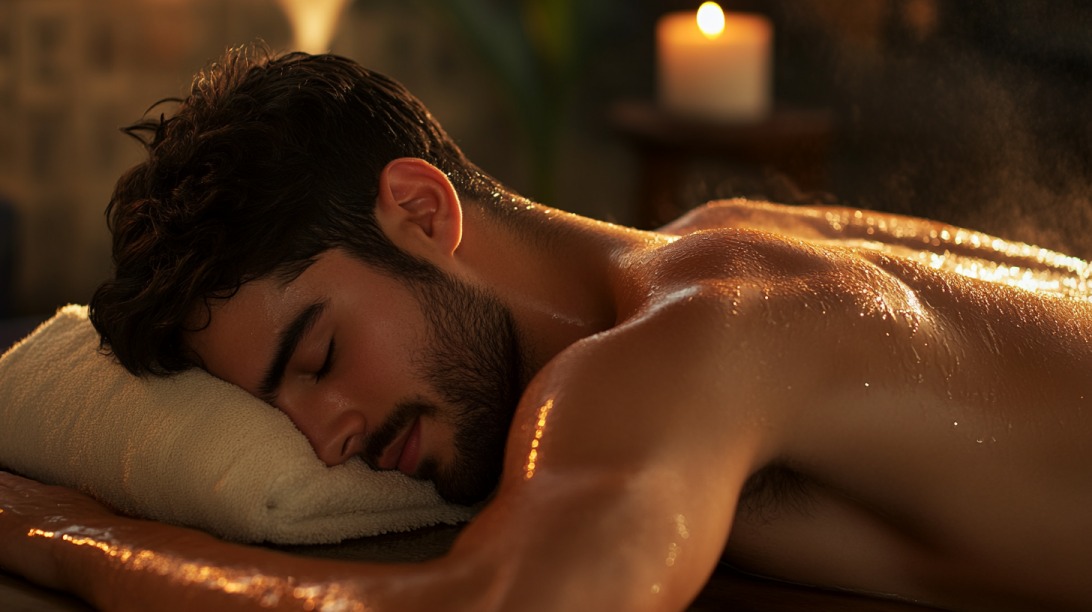Cross-gender massages have sparked legal and cultural debate in Delhi, drawing attention to perceptions around wellness services and morality.
In a significant development, the Delhi High Court weighed in on the matter, asserting that opposite-gender massage does not equate to sexual activity.
The case has drawn responses from multiple quarters, including spa owners, the Delhi government, and the judiciary, setting the stage for a broader conversation on professional practices and civil liberties.
The Legal Dispute

The debate over cross-gender massage in Delhi escalated when wellness centers found themselves facing legal uncertainty due to a policy issued by the state government.
The policy’s enforcement disrupted regular operations, raising alarms across the spa and wellness industry. Legal action quickly followed, with professional bodies stepping forward to challenge what they deemed an arbitrary and discriminatory measure.
Several key points emerged in the formal petitions and court proceedings, laying the groundwork for a larger constitutional conversation.
Spa centres, particularly through associations like the Association of Wellness Ayurveda & Spa, filed petitions against the Delhi government’s decision to ban opposite-gender massage in licensed wellness establishments.
- Owners argued that the directive infringed on their right to conduct a lawful business without unjustified interference.
- Industry professionals pointed out that therapeutic massage was being wrongly associated with criminal intent.
- Regular inspections, unwarranted pressure to remodel facilities, and fear of penalties created financial and logistical hardships.
Legal recourse was not only a matter of protecting revenue, it became a necessary response to preserve constitutional guarantees.
By invoking Article 19(1)(g) of the Indian Constitution, spa owners emphasized their right to practice a profession of their choice, provided it remains within legal and ethical boundaries.
The petitions highlighted that the government’s sweeping policy blurred the line between regulation and moral policing, a distinction that demanded judicial scrutiny.
Instead of applying broad restrictions, spa operators urged the administration to target actual misconduct through evidence-based enforcement. In their view, the policy lacked precision, harmed honest businesses, and failed to differentiate between wellness and illegality.
Court Observations and Interim Directions

Judicial intervention in the case served as a critical moment in redirecting a potentially overreaching administrative move. Delhi High Court’s engagement highlighted the importance of separating moral assumptions from factual realities.
Justice Rekha Palli’s handling of the case introduced a balanced perspective on professional conduct in wellness services, particularly addressing the sensitive issue of cross-gender interactions.
Her remarks and interim directions brought much-needed reassurance to spa operators and professionals who feared arbitrary enforcement.
Key judicial positions and interim measures are summarized below for clarity.
Cross-gender massage does not imply sexual intent
Justice Rekha Palli made a strong statement, emphasizing that a massage involving members of the opposite sex should not be presumed to involve sexual activity.
Her observation dismantled the core assumption behind the Delhi government’s policy that equated cross-gender services with immoral conduct.
Condemnation of generalizations
The court took issue with the blanket categorization of wellness practices based on gender. A massage, when conducted professionally and with consent, cannot be automatically treated as suspect.
Gender of the therapist or recipient, according to the court, is irrelevant without concrete evidence of illegality.
Interim protection for spa operators

Justice Palli ordered that no coercive action be taken against spa owners, managers, or massage professionals until the case concludes.
- Protection from police raids based solely on cross-gender service.
- Suspension of penalties or shutdowns unless tied to proven unlawful acts.
- Time for spa owners to continue operations under judicial oversight.
Recognition of the state’s legitimate concerns
While shielding professionals from arbitrary actions, the court did not ignore the government’s responsibility to curb illegal operations.
- Act against establishments found engaging in prostitution or trafficking.
- Investigate and prosecute any spa functioning outside the boundaries of the law.
- Ensure compliance with general health and safety regulations without moral profiling.
Emphasis on regulatory clarity and fairness
The court’s directive implicitly called for policy refinement. By distinguishing lawful therapeutic practices from unlawful exploitation, it signaled that regulatory actions must be based on evidence, not social stereotypes.
Justice Rekha Palli’s directions struck a balance between safeguarding personal rights and supporting legitimate governance.
Her statements created a reference point for future deliberations around service-sector ethics, professional dignity, and the limits of administrative authority.
Arguments from Both Sides

The controversy surrounding the Delhi government’s policy on opposite-gender massage reflects a larger clash between regulatory intentions and professional rights. On one side, government authorities cite concerns of public morality and misuse of wellness centers.
On the other hand, spa industry professionals argue for constitutional freedoms and protection from unjustified targeting.
Both perspectives present compelling arguments, rooted in policy goals and real-world consequences.
Government’s Position
Officials defending the policy argue that wellness establishments could be vulnerable to misuse, and proactive measures are necessary to prevent such occurrences.
They maintain that cross-gender massage services may create opportunities for unlawful activity and that preemptive control is a matter of prudence.
Authorities referenced practices followed in elite hospitality environments as precedents, suggesting that internal rules in luxury hotels and tourist destinations often restrict such services.
- Emphasis on stopping alleged illegal activities before they occur rather than reacting after violations.
- Citing luxury hotels and tourism zones where cross-gender massages are typically avoided as a standard practice.
- Arguing that unchecked services could compromise the broader social environment.
- Standardized bans are easier to enforce than individualized assessments of legality or conduct.
Officials claimed their intention was not to criminalize legitimate massage therapy but to minimize environments that might be exploited for unethical purposes.
Delhi High Court Dismisses PIL Against Cross-Gender Massages At Spa Centers@pahwa_jayanti reportshttps://t.co/DDRLvj8C0b
— LawBeat (@LawBeatInd) April 4, 2024
Spa Industry’s Rebuttal
Spa and wellness professionals countered the government’s stance with strong criticism, arguing that the policy not only hurts business operations but also unfairly stigmatizes a regulated and respected profession.
They maintained that their establishments adhere to professional ethics, training standards, and operational transparency.
Practitioners argued that associating opposite-gender massage with sexuality reflects outdated thinking and contributes to moral panic.
Reports surfaced of spas facing sudden inspections, structural renovation demands, and threats of closure—all interpreted as coercive attempts to force compliance.
- Invocation of Article 19(1)(g), which guarantees the right to practice any profession or business in India.
- Complaints of being subjected to frequent inspections, disruption of service, and undue penalties.
- Emphasis on rigorous training, therapist certification, and global wellness standards being followed.
- Use of analogies with gyms, yoga centers, and physiotherapy clinics to demonstrate that cross-gender interaction is normal and non-sexual in many other professions.
- Citing revenue loss, disruption of services, and damage to employee morale caused by sudden policy enforcement.
Spa owners expressed concern that reducing professional interactions to stereotypes not only hampers their credibility but also legitimizes invasive regulation under the guise of moral oversight.
Summary
Delhi High Court’s position reinforces the importance of distinguishing legitimate professional services from illicit conduct.
Cross-gender massages, when performed within the bounds of training and consent, cannot be generalized as immoral or unlawful.
As the case unfolds, safeguards must ensure that professional communities are not subjected to moral policing or arbitrary restrictions.
Legal oversight must focus on actual violations rather than assumptions, preserving both individual rights and societal standards.

